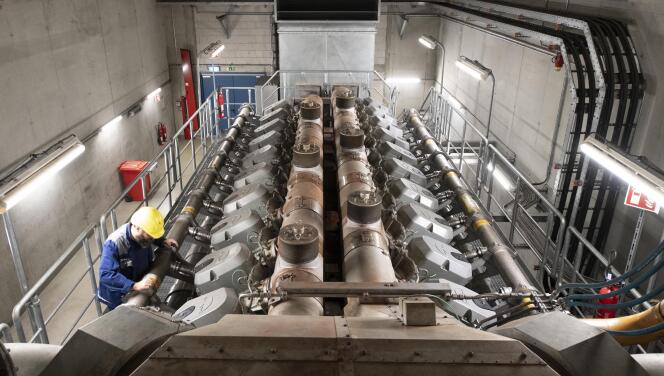The subject was remembered as “the great German gas debate”. On March 7, 2022, a few days after Russia’s attack on Ukraine, nine renowned economists, including Moritz Schularick, president of the Kiel Institute for the World Economy, published an impact study entitled “What if?” The Economic Effects for Germany of a Stop of Energy Imports from Russia ». It concerns a scenario hitherto radically rejected by Berlin: an immediate embargo on Russian gas. The authors judge its effects “manageable” for the German economy.
At the time, Germany was dependent on more than 50% from Moscow for its supply. Several economists affiliated with institutes close to employers or unions have already warned against any sanctions affecting Russian gas: they anticipate a recession of up to 12% in the event of a disruption in deliveries, and cascading effects throughout the country. ‘industry. But the authors of “What if?” » arrive at an opposite conclusion: they believe that the capacity of industry and households to adapt is much more important than what has been accepted until now. The recession would only be 1% to 3%, and Russia’s energy weapons would be significantly weakened.
The article triggers a quarrel of rare intensity. The boss of the chemical group BASF, Martin Brudermüller, is personally involved and warns in the press that such a measure would plunge the German economy “in its greatest crisis since the end of the Second World War”. The chancellor, Olaf Scholz, himself publicly discredits the authors of the study. We know the rest: the embargo will not be decided, but, a few months later, Russian gas deliveries will be reduced by Russia itself, before being definitively interrupted by the explosion of the Nord Stream 1 and 2.
Effective measures
However, the feared shock did not occur. Without Russian gas, Germany certainly entered recession in 2023, but the impact remained relatively moderate. The industry quickly found substitutions for gas. BASF itself imported ammonia from one of its factories in the United States. Households have reduced the heating. And politicians have taken effective measures to limit the rise in prices and consumption.
In an article published at the end of September, certain authors of “What if?” » came back to this moment. They draw conclusions on political decision-making in times of crisis, emphasizing the strong influence of the German model. “close coordination between the government, professional associations and unions”. And continue: “The theoretical and empirical reasoning of economists was judged to be much less relevant than the judgment of business leaders. »
You have 9.36% of this article left to read. The rest is reserved for subscribers.
